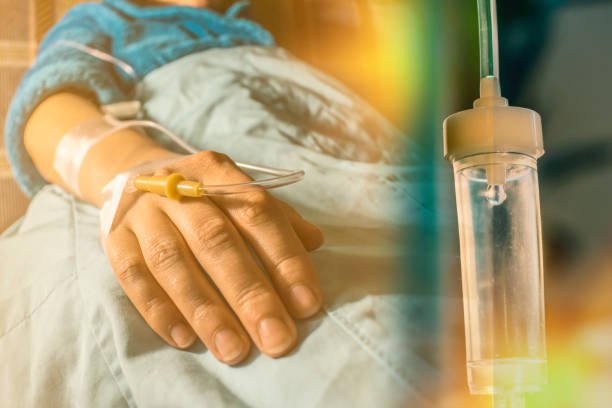
Chemotherapy is the term used to describe cancer treatment using substances that precisely destroy cancer cells. Chemotherapy works by destroying quickly dividing cells, which is one of the key characteristics of cancer cells. The most frequent side effects of chemotherapy are myelosuppression (reduced production of blood cells), mucositis (inflammation of the lining of the digestive tract), and alopecia (hair loss), because it also damages cells that divide quickly under normal conditions, including those in the bone marrow, digestive system, and hair follicles (hair loss).
Right after World War II, research on mustard gas showed that it has the ability to kill living cells, especially those which rapidly divide, such as those in the intestinal tract, bone marrow, and lymph system. This led to the first suggestion of chemotherapy as a cancer treatment. Doctors quickly came up with the theory that they might poison cancer cells, which are the cells that divide the fastest of all, with mustard gas. In fact, a lot of the medications we take now are related to mustard gas, which is why we find them to be so poisonous (The Immortal Cell, Dr Gerald B Dermer, Avery Publishing Group, Garden City Park, 1994).
The phrases "cure" and "response" are used differently by oncologists. They do not take into account whether treatment improves quality of life or survival rates; they simply assess "response," or the tumour's shrinkage, as a sign of success. German epidemiologist Dr. Urich Abel discovered that when a tumour mass partially or temporarily vanishes, the remaining tumour cells that are resistant to the effects of the chemotherapy can occasionally grow much faster afterward. He examined virtually every article (in total, several thousand) on chemotherapy as well as the work of about 350 scientists working on cancer therapies. According to Der Spiegel (1990; 33: 174-6), patients who did not respond to chemotherapy frequently live longer than those who do. Additionally, see J Otolaryn (1995); 24(4): 242-52.
For more information open below link
https://smtexperthealth.blogspot.com/2022/06/chemotherapy-is-risky-that-much-is-true.html